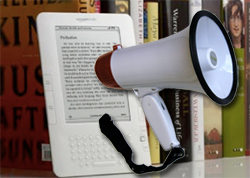
Following months of legal wrangling and a false start, Mac clone maker Psystar may finally get its day in court. A U.S. federal judge has ruled that Psystar will be given the opportunity to amend its counterlawsuit against Apple, filed after that company sued Psystar over its OS X-running PCs, to focus on alleged copyright abuses instead of antitrust law violations.
On Friday, Feb. 8, U.S. District Court Judge William Alsup signed an order that will allow Psystar’s countersuit against Apple to continue. If Psystar provides it allegation that Apple misused its copyrights to block out competition, other PC makers would be free to preinstall the OS onto their machines, Judge Alsup noted.
Apple sued Psystar in July 2008, accusing it of breaking copyright and software licenses laws by preloading Intel-based PCs with Mac OS X 10.5 without its blessing. The company has also accused Apple of modifying Mac OS X to crash on non-Apple systems. Psystar began selling the Mac clones in Apr. 2008.
Psystar’s original complaint accused Apple of violating antitrust law by tying its Mac OS X operating system together with its hardware, exclusively, but the court rejected that argument in November 2008.
Intellectual property law is always tricky and controversial, so lawsuits such as these should be ruled upon to clarify uncertainty (and by the highest court of the land). Until the laws themselves are reformed, this kind of uncertainty will persist.
My take is that when a company, or individual, is granted intellectual property by the government, they are essentially given a monopoly. The question is: Has Apple abused its monopoly? I don’t think that it has.
If Apple sold Mac OS X standalone, and then modified its license or software to intentionally excludes other manufacturers, that would be wrong. Apple creates it own hardware, and software for that hardware, and there is nothing wrong with that.
 A bill that targets unauthorized streaming of movies and TV shows could have a detrimental effect on a vibrant part of video game culture.
A bill that targets unauthorized streaming of movies and TV shows could have a detrimental effect on a vibrant part of video game culture.
 Grooveshark became a rare victim of Android Market policy on Tuesday, when Google removed the streaming music app
Grooveshark became a rare victim of Android Market policy on Tuesday, when Google removed the streaming music app  [Update: The audio is back, and WMG’s copyright notice is gone. Original post below.]
[Update: The audio is back, and WMG’s copyright notice is gone. Original post below.]

 When it comes to thorny matters of intellectual property, my instinct is often to follow a philosophy which, as far as I can tell, almost nobody else shares. It’s a sort of creators’-rights libertarianism which you might call Let the People Who Create Stuff Make Their Own Damn Mistakes. (Possible alternative moniker: Reverse
When it comes to thorny matters of intellectual property, my instinct is often to follow a philosophy which, as far as I can tell, almost nobody else shares. It’s a sort of creators’-rights libertarianism which you might call Let the People Who Create Stuff Make Their Own Damn Mistakes. (Possible alternative moniker: Reverse 